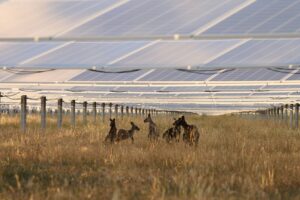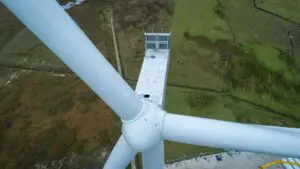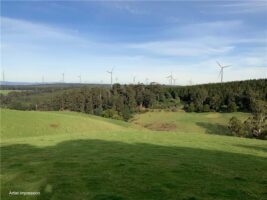Perth-based Carnegie Clean Energy is proposing to set up a solar-storage energy hub in South Australia as part of its pitch for the state government’s ground-breaking battery storage tender.
In a joint announcement with energy minister Tom Koutsantonis and premier Jay Weatherill in Adelaide on Friday morning, Carnegie CEO Michael Ottaviano said the company has teamed up with Lend Lease Services and South Korea’s Samsung for the proposal.

It proposes to build a 100MW/100MWh lithium-ion battery, using Samsung technology, and wants to do this in Adelaide in a centre that will evolve into a “battery storage” hub, building new battery systems and doing R&D and integration work.
“This is an opportunity to build an industry for the future,” Ottaviano told journalists in Adelaide. “This will be the first 100MW battery, not the last.”
Carnegie’s is just one of a number of proposals for the state government tender, which closed at 12 noon local time on Friday.
Others include the $1 billion solar and battery storage project unveiled by Lyon Solar on Thursday, and rival offers from Zen Energy/Greensmith, Tesla, LG Chem, Adelaide-based silicon storage developer 1414 and many more.
Koutsantonis said the tender had elicited an “unprecedented” response with more than 200 downloads from nine different countries. Final numbers will be revealed on Monday.
“It has captured international attention for people to see opportunities with our remarkable renewable energy power,” Koutsantonis said. “You can hand around lumps of coal, or you can move forward with new technologies. Storage will become the norm and we will be at the forefront of that.”
Ottaviano says the battery storage hub would be powered by a “multi-megawatt” rooftop solar system – and could employ 300 people to deliver the project, including electricians and engineers from sunset manufacturing industries in South Australia.
He said Carnegie would own the battery storage unit, and use it to trade energy, arbitraging opportunities in the market, and also playing in the FCAS (frequency and ancillary services) market when not being called upon by the government to provide grid support.
But he said such installations would rely on government support until market rules were changed that would level the playing field for battery storage.
“As renewable energy penetration inevitably increases across the country, the need for utility-scale energy storage will grow in lockstep,” Ottaviano said in a later statement.
“The deployment of utility-scale battery systems creates an opportunity for South Australia and Australia to develop a new local industry and export this capability throughout our region.”
Weatherill told journalists that battery storage was exciting because it sourced “free energy” from the wind and the sun, and would create the jobs of the future.
“What we’re starting here in South Australia is incredibly important. We’re starting a new industry.”








